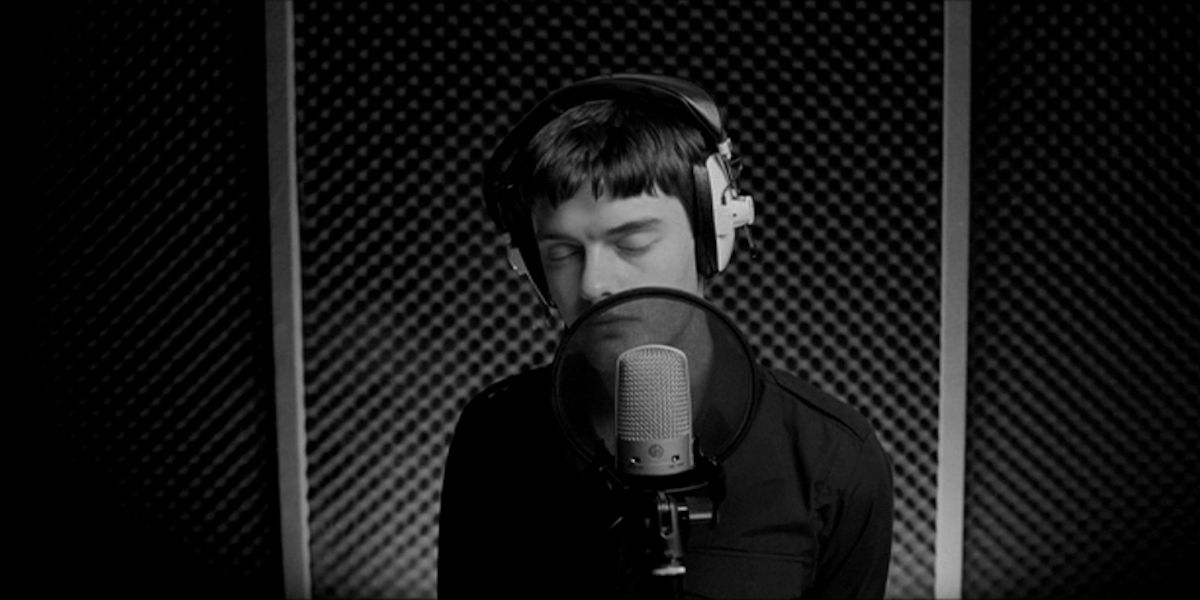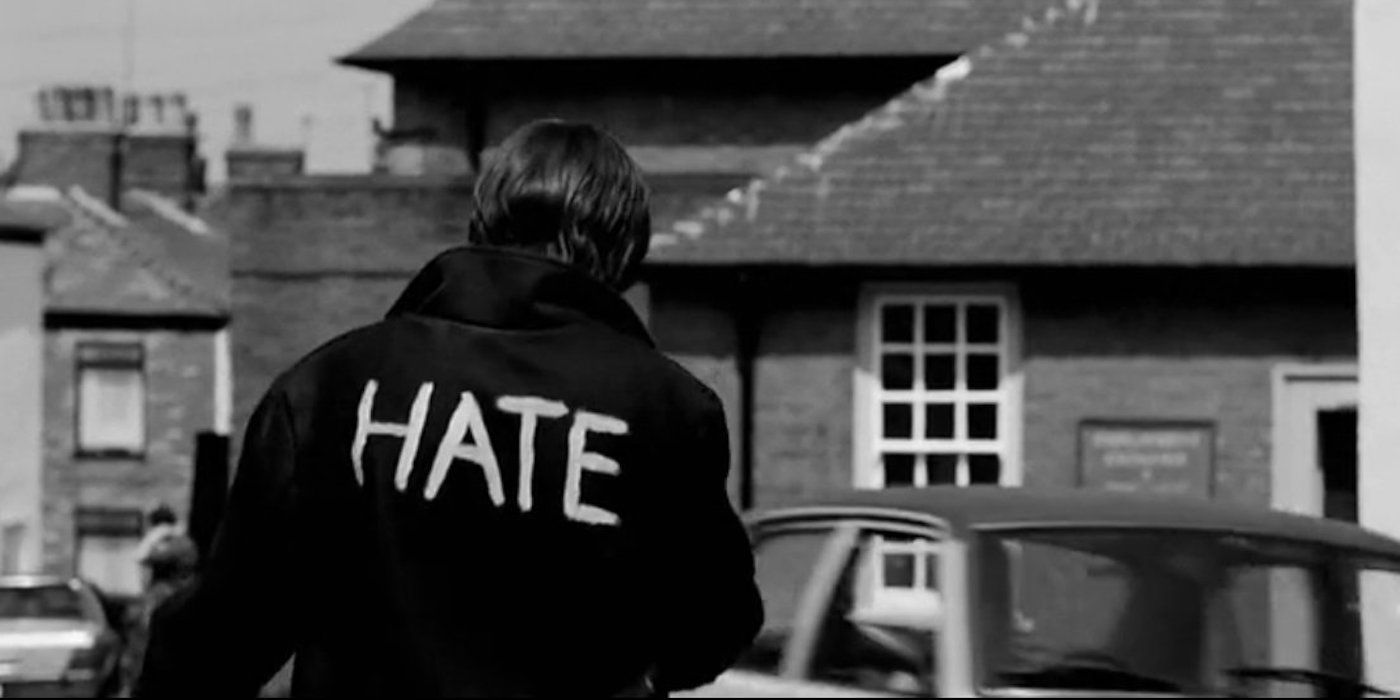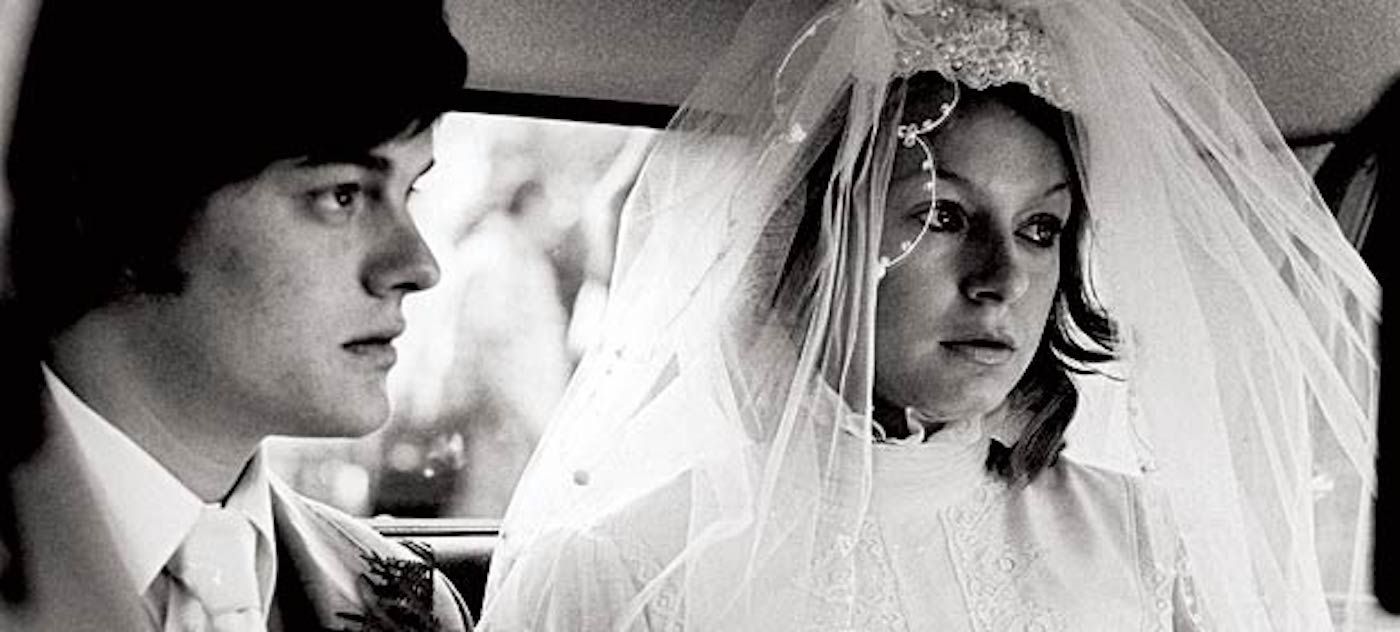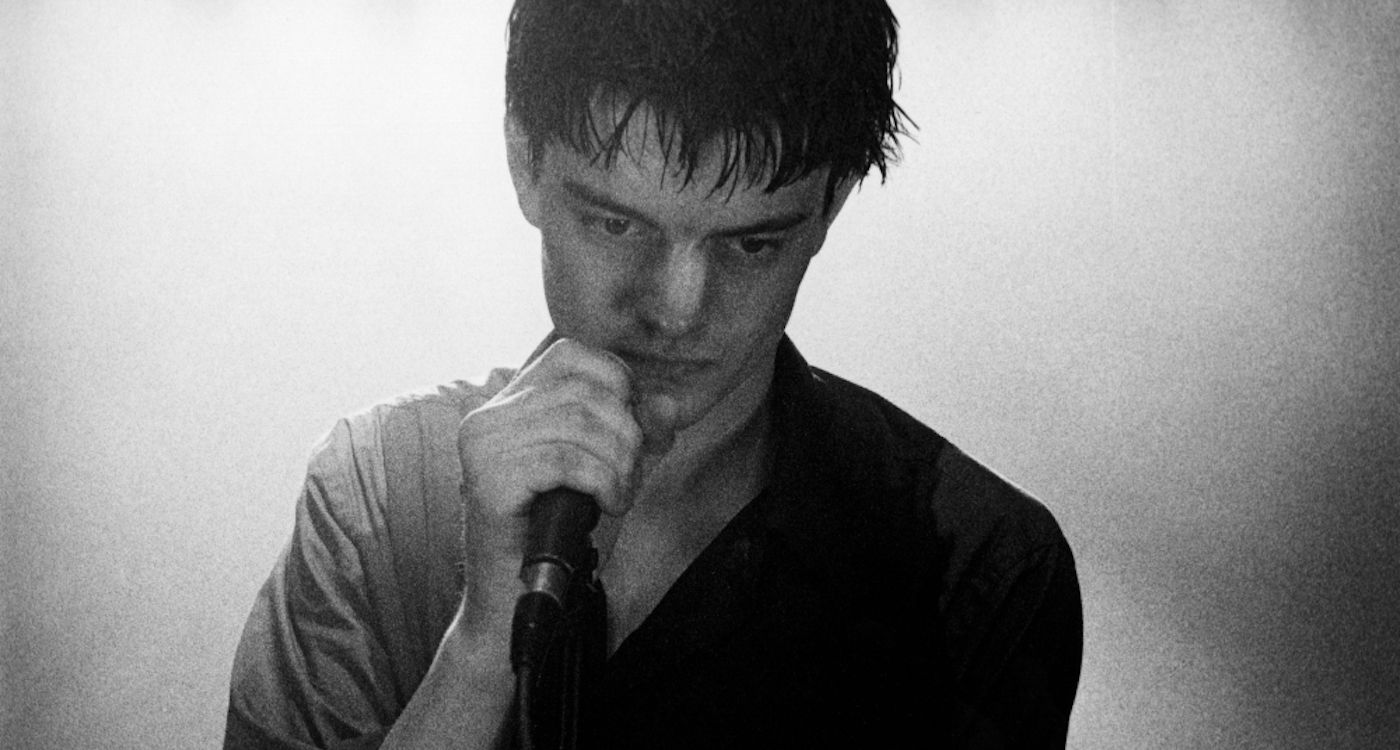There are not many between the age of 20 and 50 that don’t know the iconic motif of "Love Will Tear Us Apart" by Joy Division. However, it is, perhaps, unlikely that they will know any other of the band’s songs - hits such as "Transmission" or "Disorder" - and, less likely still, that they will know the tragedy of the band’s vocalist and lyricist, Ian Curtis. Known for his unique bass-baritone singing style, Curtis’ lyrics continue to draw people in with their enigmatic means of describing isolation, alienation, and disconnection. These, among other demons, would eventually lead to Curtis to take his own life at just 23 years of age.
2007’s Control allows us to see this all-too-common tragedy unfold. Sam Riley makes his screen debut as Curtis, which is an intelligent choice from those in charge of casting. We’re not seeing Rami Malek playing Freddy Mercury or Michael Douglas playing Liberace. We don’t know Sam Riley at this point, he’s just Ian Curtis to the viewer.
Immediately, the overall aesthetic of the film introduces us to Curtis’ mental health and the influence of his style and music. The entirety of Control is shot in black and white, paying homage to Joy Division’s iconic prehension for the monochromatic but, also, introduces us to the crippling depression that Curtis suffers from. There is no life, no color, only dreary shades of gray. However, music is quickly established as his true love and passion. The first track of the movie is by the great David Bowie, we see Curtis almost smile and seem at peace upon listening to it. We see a little handmade memorial to Jim Morrison of The Doors, and Howl by Alan Ginsberg on his bookshelf. These are all figures of creativity that have inspired others by their commentary on social isolation and feeling out of place. However, they are also notorious for their excessive drug use.

After stealing pills from an old ladies’ bathroom cupboard, Curtis reads the nasty side effects to his brother that can occur upon consumption. After which, Curtis merely laughs sardonically and says; “I’m taking two.” This small comment shows us not only how little he values his own well-being but the desperate need for escape that governs him. However, behind his quiet and unsociable demeanor is a boundless creativity and appreciation for the arts: often quoting pre-existing poetry and his own writings, which appear interchangeable in how wonderfully lyrical they are.
What makes the inevitable end of Control all the more heartbreaking, is Curtis’ inherent drive for stardom. His drive is not only fueled by his passion for music but, seemingly, out of anger and frustration. From the word "hate" painted boldly on the back of his jacket to the aggressive command that the band be on the show of a local TV presenter, Curtis has that fuse within him. Riley is immaculate in his capturing of Curtis’ mannerisms, but the fact he is eerily the spitting image of him always helps. From the steady and intense stares to gripping the microphone for dear life, to attempting to loosen up and dance only for it to look almost unnatural, his understanding of Curtis’ physicality both as a performer and a person is immensely interesting to watch.
To revisit the awkward dancing and movements that Curtis was actually famous for, Control is smart to establish this with a scene of Curtis alone in his room, goofily dancing in front of his bedroom mirror. We have childish debates on what counts as swear words, constant farting before a show - we are reminded that Curtis, and Joy Division as a whole, are just kids. The charm of Control is its loyalty to the idea of humble beginnings and how ordinary the band’s lives are outside their music career.

We come to learn of Curtis’ struggle with epilepsy, an illness that is sadly defined by a lack of control with involuntary convulsions and seizures. Furthermore, the doctor's horrifying list of prescribed medications would set off alarm bells in our minds today but is administered with an unsettling casualness. We see the “drowsiness” side effect impede young Curtis’ existence, over-sleeping is commonly known to exacerbate depressive symptoms and mood. Riley gives a genuinely fearful performance upon the discovery that epilepsy can actually be fatal, having learned an acquaintance has died as a result of a fit. This, in turn, acts as an inspiration for one of the band’s most famous songs "She’s Lost Control."
However, Curtis is no angel. With distance occurring in his marriage to his young wife, Debbie (Samantha Morton), we see possibilities of infidelity as the band’s reputation and popularity grows. We have seen him go through the motions of a "normal" life: Marriage, house, a baby. But in his wandering eye, there is an undisputable yearning. In an interview with an alluring, Belgian journalist (with who he embarks on an affair), he is asked to describe Maccelsfeild, his hometown, he responds: “It’s gray, it’s miserable: I’ve wanted to escape it my whole life.”
Then, the craftsmanship of the cinematography really starts to creep in. The lingering shots of the washing hanging from the ceiling, Curtis touching his throat, the bottles and bottles of pills foreshadow the beginning of the end. The glamorous shots of his silhouette commanding the stage are replaced with his sobbing in the fetal position, unable to continue making love to his wife. The intimate realities of depression and hollowness are revealed behind the alluring and brooding persona that many have viewed him as.

Control is careful not to martyrize Curtis, as we see him batting off affection from Debbie, and having a full-fledged affair with the journalist. We are reminded of the surrounding loved ones that these emotions of depression, repression, and alienation hurt, as well as the individual. With the decline of his marriage to Debbie reaching a bleak conclusion, the song we all know and love - "Love Will Tear Us Apartbegins, as she walks away with tears in her eyes.
Now, we begin to see a disconnect between Curtis and the rest of the band. (Side note, Riley has an excellent singing voice.) They’re in the other areas of the studio, chatting and exchanging ideas, never batting an eye at the stoic Curtis’ lyrics becoming more and more of a cry for help. There’s no movement or expression on his face as before, there’s a complete numbness. But there are elating moments when we see him bursting to life on stage, that iconic movement coming back… but even more erratic. It almost begins to mimic a fit, something that has already come to symbolize a loss of control within the context of the film. Unfortunately, the dancing does meld into an actual fit and the freedom of that movement becomes a prison, once more.
Curtis’ flirts with suicide more than once, but the silence after the fact is deafening. It is never said, addressed, or even hinted at by himself or those around him. The pressures of fame clearly crumbling his mind, he begins to run on autopilot. The chaos of his life and the impending loss of control culminates into the now-famous Bury Riot, a gig that reportedly ended in screaming and violence, due to Curtis being unable to perform.

Upon returning home, divorce is on the cards, and Curtis has been drinking heavily on his medication; the fits continue, he grows hollow and cold towards his family and friends, even his mistress. The devastating final scenes of the film are like a car crash - we want to look away, but we just can’t. The film ends with Debbie discovering Curtis hanging from the clothes line and Joy Division's most tear-jerking ethereal song "Atmosphere" playing out as the screen fades to black.
Overall, Control is a subtle but insanely powerful reminder of how silence is the ultimate killer. Curtis did, indeed, pour his pain into his lyrics, but his mental health issues were never discussed. He could only sing his pain and not say it. The film also reminds us of other artists that have met a similar tragic end, for example, Kurt Cobain. His plight has become romanticized, mythicized, and the torture of depression has often been discussed as "suffering for your art." But Control forces us, fans and non-fans of Joy Division alike, to see that behind the mirage of fame, there are brutal realities and that art should alleviate suffering and not become a part of it. To summarize, "Atmosphere’s lyrics capture the message at heart: “Don’t walk away in silence.”
About The Author"control" - Google News
March 07, 2022 at 05:00AM
https://ift.tt/7GCtajx
Control: The Joy Division Biopic Is a Must Watch - Collider
"control" - Google News
https://ift.tt/bjVDoix
https://ift.tt/tvqalg0
Bagikan Berita Ini














0 Response to "Control: The Joy Division Biopic Is a Must Watch - Collider"
Post a Comment